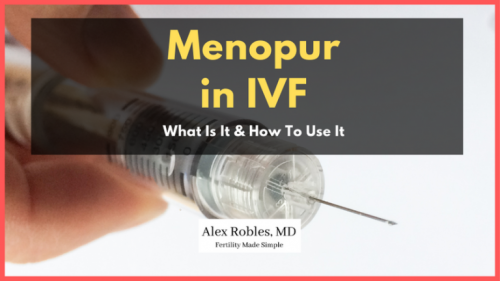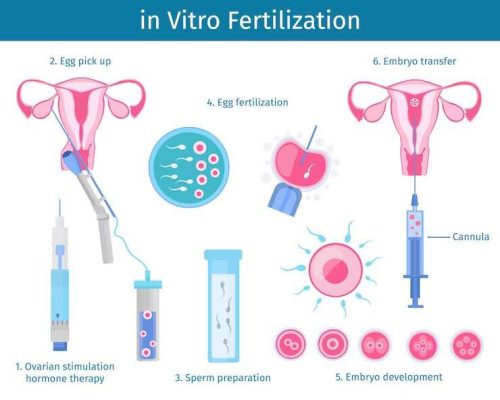Can You Take Metformin While Undergoing IVF?
If you’re exploring fertility treatments like in vitro fertilization (IVF), you’ve probably heard about metformin. Maybe your doctor mentioned it, or you stumbled across it in a forum or article. It’s a medication most people associate with diabetes, but it’s popping up more and more in conversations about fertility—especially for those going through IVF. So, can you take metformin while undergoing IVF? The short answer is yes, but it’s not that simple. There’s a lot to unpack—how it works, who it’s for, what the research says, and what it might mean for your IVF journey. Let’s dive in and figure this out together.
What Is Metformin, Anyway?
Metformin is a drug that’s been around for decades, originally designed to help people with type 2 diabetes manage their blood sugar. It’s part of a class of medications called biguanides, and it works by making your body more sensitive to insulin, lowering the amount of sugar your liver pumps out, and helping your cells use glucose more effectively. Pretty straightforward for diabetes, right? But here’s where it gets interesting: doctors started noticing it could do more than just control blood sugar—it could help with fertility, too.
For women with conditions like polycystic ovary syndrome (PCOS), metformin became a game-changer. PCOS messes with your hormones and insulin levels, often making it harder to ovulate or get pregnant. Metformin steps in to lower insulin, which can balance those hormones and kickstart ovulation. That’s why it’s now a go-to for some fertility specialists, even during IVF. But if you’re not diabetic or don’t have PCOS, does it still make sense for you? Hold that thought—we’ll get there.
Why Metformin and IVF Might Go Hand in Hand
IVF is a big deal. It’s a process where eggs are collected from your ovaries, fertilized in a lab, and then transferred back into your uterus. It’s amazing, but it’s also intense—your body gets a hefty dose of hormones to supercharge egg production. For some people, especially those with PCOS, this can lead to complications like ovarian hyperstimulation syndrome (OHSS), where your ovaries overreact and swell up. Not fun.
Here’s where metformin comes in. Because it helps regulate insulin and hormones, some doctors think it might smooth out the IVF process. Studies show it could lower the risk of OHSS, improve egg quality, and even boost pregnancy rates in certain cases. A 2020 meta-analysis of 12 studies with over 1,100 women found that metformin cut the odds of OHSS by more than half for PCOS patients going through IVF. That’s a big deal if you’re worried about side effects.
But it’s not just about avoiding problems. Some research suggests metformin might help your ovaries respond better to the stimulation drugs used in IVF, potentially leading to more mature eggs. For women who’ve had rough IVF cycles before, that’s a glimmer of hope. So, if you’re wondering whether metformin could give your IVF a little extra edge, you’re not alone—it’s a question tons of people are asking.
Who Should Consider Metformin During IVF?
Not everyone doing IVF needs metformin. It’s not a magic pill for fertility, and it’s definitely not a one-size-fits-all solution. So, who’s it for? Let’s break it down.
Women with PCOS
If you have PCOS, metformin might already be on your radar. About 1 in 10 women of childbearing age deal with this condition, and it’s a leading cause of infertility. PCOS often comes with insulin resistance—your body doesn’t use insulin well, which can spike your blood sugar and throw your hormones out of whack. Metformin tackles that insulin issue, which might make your IVF cycle more successful. Doctors often prescribe it if you’ve got PCOS symptoms like irregular periods, excess hair growth, or cysts on your ovaries.
Women with Insulin Resistance (Even Without PCOS)
Here’s something you might not see in every article: you don’t need a full-blown PCOS diagnosis to benefit from metformin. If tests show you’re insulin resistant—say, from a fasting glucose-to-insulin ratio—your doctor might suggest it anyway. Insulin resistance can mess with egg quality and ovulation, even if your ovaries look normal on an ultrasound. A small 2019 study found that women without PCOS but with insulin issues saw better embryo quality when they took metformin during IVF. It’s not a huge study, but it’s a clue there’s more to explore.
IVF Repeaters
If you’ve been through IVF before and it didn’t work, metformin might be worth a chat with your doctor. Some clinics use it for “IVF repeaters” who’ve had two or more failed cycles. A 2012 study out of Japan looked at women without PCOS who’d struck out on IVF multiple times. When they added low-dose metformin (500 mg a day), their pregnancy rates jumped from 20% to over 50%. Why? Researchers think it’s about reducing stress on the body and improving how ovaries respond to stimulation. It’s not a guarantee, but it’s an angle not everyone talks about.
The Average IVF Patient?
If you don’t have PCOS, insulin resistance, or a history of failed cycles, metformin probably isn’t for you. There’s little evidence it helps healthy women with no metabolic issues. In fact, taking it without a clear reason might just mean extra side effects—like stomach upset—without any payoff. So, if your labs and hormones look good, you might not need to add this to your IVF toolbox.
✔️ Quick Tip: Ask your doctor for a simple blood test to check your insulin levels before jumping on the metformin train. It’s an easy way to see if it’s a fit for you.
❌ Heads-Up: Don’t assume metformin’s a must just because you’re doing IVF. It’s not a universal booster—your body’s unique needs matter most.
What Does the Science Say?
Research on metformin and IVF is a mixed bag. Some studies shout its praises, while others shrug and say, “Meh.” Let’s sift through the evidence so you know what’s what.
The Good News
A big 2020 review in JAMA Network Open looked at 12 randomized trials with PCOS patients doing IVF. Here’s the scoop: metformin slashed the risk of OHSS (odds were 43% lower) and didn’t hurt pregnancy or live birth rates overall. For women with a BMI over 26, it even bumped up clinical pregnancy rates. That’s solid stuff—fewer complications and a possible edge for those carrying extra weight.
Another study from 2015 surveyed 101 fertility clinics worldwide. About 70% of them said metformin boosted pregnancy rates and cut miscarriages in PCOS patients during IVF. That’s not hard data, but it’s a real-world hint from people in the trenches.
The Not-So-Great News
Not every study’s a cheerleader. A 2004 randomized trial in Human Reproduction tested metformin in PCOS women before and during IVF. The result? No big difference in pregnancy or live birth rates compared to a placebo. A 2020 Cochrane review echoed this, finding no clear boost to live births, though it did confirm the OHSS benefit.
And here’s a curveball: a 2016 study from Duke found that short-term metformin (started during stimulation) actually lowered the number of eggs retrieved in overweight PCOS women. Pregnancy rates held steady, but fewer eggs could mean fewer chances for a good embryo. Timing might matter more than we think.
What’s Missing?
Most studies focus on PCOS, leaving non-PCOS patients in the dark. There’s also not much on long-term effects—like how metformin might affect a baby years down the road. Plus, the dose and timing vary wildly between studies (500 mg to 2,000 mg, weeks to months), making it hard to pin down the best approach. The science isn’t settled, but it’s leaning toward “helpful for some, not all.”
✔️ Takeaway: Metformin’s a solid bet for reducing OHSS risk in PCOS, but don’t count on it as a pregnancy guarantee unless your doctor sees a specific reason for you.
How Does Metformin Fit Into Your IVF Cycle?
If you and your doctor decide metformin’s a go, how does it actually work with IVF? It’s not like popping a vitamin—you’ve got to time it right and know what to expect.
When to Start
Some doctors start metformin months before IVF—up to three, according to that 2015 clinic survey. Why? It gives your body time to adjust insulin and hormone levels, potentially setting up a smoother cycle. Others start it with your stimulation drugs or even after egg retrieval, depending on the goal (like preventing OHSS). There’s no one-size-fits-all, so your doc will tailor it to you.
Dosage Details
Most people land between 1,500 and 2,000 mg a day, split into two or three doses. You might start low (say, 500 mg) to ease into it—your stomach will thank you. Extended-release versions can cut down on side effects, too. A typical plan might look like this:
- Week 1: 500 mg once a day with dinner.
- Week 2: 500 mg twice a day (morning and night).
- Week 3: Up to 1,000 mg twice a day, if you can handle it.
How Long to Take It
Some stop at a positive pregnancy test, others go to 12 weeks of pregnancy to lower miscarriage risk (33% of clinics in that 2015 survey did this). If OHSS is the worry, you might only need it through the stimulation phase. Your doctor’s call depends on your history and goals.
✔️ Pro Tip: Take it with food to dodge nausea. Sip water throughout the day—it helps, too.
❌ Watch Out: Don’t stop cold turkey without checking with your doc. It could throw your system off.
Side Effects: What You Might Feel
Metformin’s not all sunshine and rainbows. It’s got a rep for tummy troubles, especially at first. Here’s what might happen—and how to deal.
- Nausea or Upset Stomach: About 25% of people feel this. Start low, go slow, and eat with it.
- Diarrhea: Common early on. It usually fades as your body adjusts.
- Metallic Taste: Weird, but harmless. Chew gum if it bugs you.
- Rare Stuff: Lactic acidosis (a buildup of acid in your blood) is super rare but serious. Call your doctor if you feel super weak or have muscle pain.
Most side effects chill out after a few weeks. If they don’t, talk to your doctor—there’s a liquid version or other tricks to try.
✔️ Hack: Pair it with a bland meal like rice or toast to settle your stomach.
A Little Quiz: Is Metformin Right for You?
Let’s make this fun. Grab a pen and tally your “yes” answers:
- Do you have PCOS? (Yes/No)
- Ever been told you’re insulin resistant? (Yes/No)
- Had two or more IVF cycles that didn’t work? (Yes/No)
- Worried about OHSS because of past cycles or PCOS? (Yes/No)
- Got a BMI over 26? (Yes/No)
Results:
- 3+ Yeses: Metformin’s worth a serious chat with your doctor.
- 1-2 Yeses: Maybe, but dig into your labs first.
- 0 Yeses: Probably not needed—focus on other IVF prep.
No pressure—this is just a starting point to spark a convo with your care team.
Real Stories: What Women Say
Numbers are great, but stories hit different. Here’s what some women have shared about metformin and IVF (names changed for privacy):
- Jess, 32, PCOS Patient: “I started metformin three months before my second IVF round. First time, I got OHSS and no pregnancy. This time? No OHSS, and I’m 20 weeks along. The nausea sucked, but I’d do it again.”
- Maria, 35, IVF Repeater: “No PCOS, but my doc suggested metformin after three failed cycles. I got more eggs and a better embryo. Pregnant now—fingers crossed it sticks.”
- Tara, 29, Healthy but Curious: “I asked about metformin, but my labs were fine. Doc said it’d just be extra pills for no gain. Glad I skipped it.”
These aren’t universal truths, but they show how personal this choice is. Your journey might look totally different—and that’s okay.
Three Things You Haven’t Heard About Metformin and IVF
Most articles stick to the basics—PCOS, OHSS, pregnancy rates. But there’s more to the story. Here are three angles you won’t find everywhere:
1. It Might Affect Your Gut Microbiome
New research is buzzing about how metformin changes your gut bacteria. A 2023 study in Frontiers in Endocrinology found it boosts good bacteria that help with metabolism. Why’s that matter for IVF? A healthy gut might mean better hormone balance and less inflammation—both big wins for fertility. No one’s studied this directly with IVF yet, but it’s a fresh twist that could explain why some women feel better on it beyond just insulin.
2. Timing Could Be Everything
Lots of studies start metformin at different points, but what if when you start matters more than if you take it? A small 2021 trial in International Journal of Fertility and Sterility tested metformin before versus during IVF in PCOS women. Starting it early (eight weeks before) led to fewer premature luteinizing hormone surges—those pesky spikes that can mess up egg timing. During-only groups didn’t see that perk. It’s a hint that prepping your body ahead of time might unlock more benefits.
3. It’s Not Just for Women
Here’s a wild one: metformin might help male fertility, too. A 2022 study in Reproductive Biology showed it improved sperm quality in obese men with insulin resistance. Better sperm could mean better embryos in IVF. If your partner’s got metabolic issues, could a dual metformin approach be a secret weapon? It’s uncharted territory, but it’s a question worth asking your doc.
Your Action Plan: Making Metformin Work for IVF
Ready to talk metformin with your doctor? Here’s a step-by-step guide to get the most out of it:
- Get Tested: Ask for a fasting insulin test or glucose tolerance test. Numbers don’t lie—they’ll show if metformin’s a fit.
- Start Early (If You Can): Aim for 8-12 weeks before IVF if possible. It gives your body time to adjust and might tweak your cycle for the better.
- Track Symptoms: Keep a little journal—energy, stomach stuff, period changes. It’ll help you and your doc fine-tune the dose.
- Pair It Smart: Eat a balanced diet (think lean protein, veggies, whole grains) to support metformin’s effects and cut side effects.
- Check In: After a month, see how you’re feeling. If it’s rough, ask about switching to extended-release or tweaking the plan.
✔️ Bonus: Sip ginger tea if nausea hits—it’s a gentle fix lots of women swear by.
What If Metformin Isn’t Enough?
Sometimes metformin’s just one piece of the puzzle. If it doesn’t do the trick—or you can’t tolerate it—don’t panic. There are other options:
- Letrozole or Clomid: These meds kickstart ovulation and pair well with IVF. They’re often first-line for PCOS.
- Diet Tweaks: Cutting carbs and upping healthy fats can mimic some of metformin’s insulin-lowering perks.
- Myo-Inositol: This supplement’s gaining traction for PCOS—it’s like metformin’s natural cousin, with fewer side effects.
A 2024 study in Fertility and Sterility compared myo-inositol to metformin in PCOS women pre-IVF. Both improved egg quality, but myo-inositol had a slight edge in embryo development. Something to chew on if metformin’s not your vibe.
Let’s Vote: Your Take on Metformin
Time for a quick poll—drop your vote in your head (or share it with a friend):
- A: I’d try metformin if my doctor thinks it could help my IVF.
- B: I’m skeptical—it’s too much hassle for unclear results.
- C: Only if I’ve got PCOS or insulin issues. Otherwise, nah.
What’s your gut say? It’s your journey, so your voice matters.
The Big Picture: Metformin’s Role in Your IVF Story
So, can you take metformin while undergoing IVF? Absolutely—if it makes sense for you. It’s a tool, not a miracle, and it shines brightest for women with PCOS, insulin resistance, or a rocky IVF history. The science backs it for cutting OHSS risk and maybe boosting egg quality, but it’s not a slam dunk for everyone. Your doctor’s your co-pilot here—lean on them to figure out if it fits your flight plan.
What’s cool is how metformin’s story keeps evolving. Gut health, timing, even a potential guy factor—these are fresh threads researchers are tugging at. For now, it’s about knowing your body, asking the right questions, and keeping your options open. IVF’s a marathon, not a sprint, and metformin might just be the water station you need—or not. Either way, you’ve got this.
Got thoughts or questions? Chat with your doc, dig into your labs, and trust your gut. Your IVF journey’s unique, and you’re the one steering the ship.




